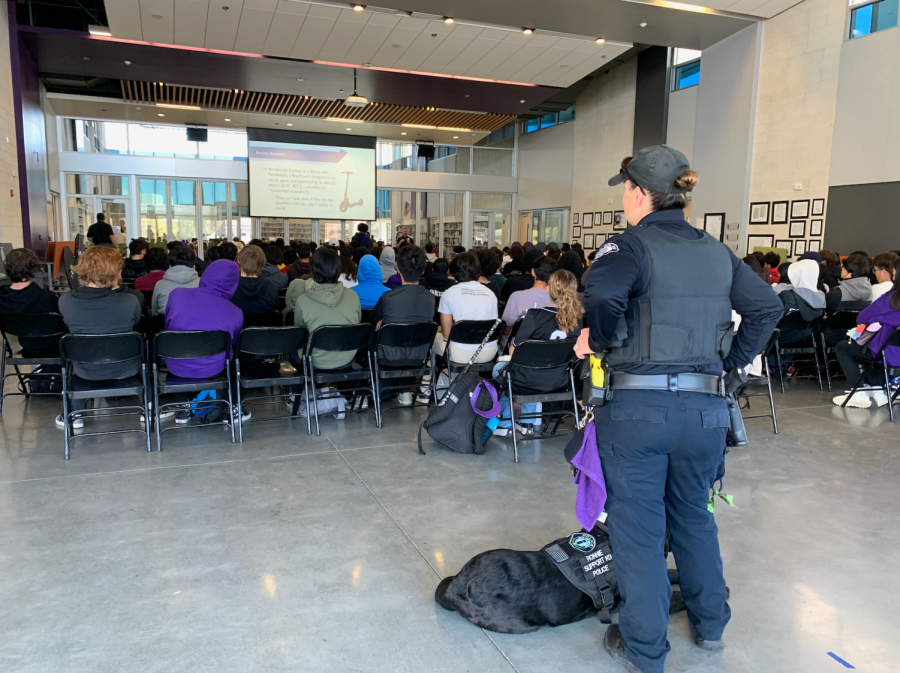Administration Implements New E-Vehicle Registration System
Student resource officer Melissa Porter watches as students during Office Hours attend an informational meeting held by the Irvine Police Department to learn about e-vehicle rules and safety. Sophomore Justin Hwang said that the information was mostly a reminder of established rules. “Most of these rules are common sense, but I get why they would give us a review,” Hwang said. “I’ve seen a lot of students riding without helmets and double-riding.”
Students will have the following two weeks from March 13 to register their e-bike, e-scooter or e-skateboard by completing a form after attending an Office Hours meeting held on March 9 or 16 taught by the Irvine Police Department (IPD) about e-vehicle rules and safety. Upon completion, students will receive a sticker to place on their registered vehicle.
The creation of the new e-vehicle registration system was a collaboration between principal John Pehrson, assistant principal James Coney, student resource officer Melissa Porter and the IPD in the hopes of ensuring student safety and regulating campus vehicles, according to Coney.
Students who do not have their e-vehicle registered within the two-week implementation period will be subject to a progressive discipline policy, which begins with a warning and can result in detention or suspension with repeated misdemeanors, according to Coney.
“Hopefully, this will be a model for other Irvine schools and other schools outside of the district to use this and help students remain safe,” Coney said. “And not just students but also pedestrians that have to walk around a lot of e-bikes.”
PNN recorded the IPD e-vehicle meetings so that students who are unable to attend the meetings can still register their vehicles, according to Coney. Not wearing helmets and riding against traffic are a few of the most common e-vehicle safety violations, according to Porter.
“We want everyone to be safe and not get injured or cause someone to get injured,” Porter said. “I hope this keeps all the students safe and accountable. Hopefully they learn the laws and use the knowledge to ride safely.”
Sophomore Justin Hwang, who rides an e-bike to school, said that the new system seems to discourage e-bike riders as a result of the new regulations students must abide by.
“In my personal experience, some regulation is fine, like enforcing helmets, but I don’t see a significant problem with students riding e-bikes on campus,” Hwang said. “I get that they are trying to keep count of e-bikes and regulate them, but I honestly feel like our focus should be on expanding the bike lots.”
In the future, Coney said that administration hopes to make the e-vehicle registration similar to parking permits, where IPD will provide informational meetings at the beginning of the year for students.
Your donation will support the student journalists of Portola High School. Your contribution will allow us to purchase equipment and cover our annual website hosting costs.

Sonia Wang is the Features Editor and a Business Manager for her third and final year on the Portola Pilot. This year, she plans to utilize her skills...




